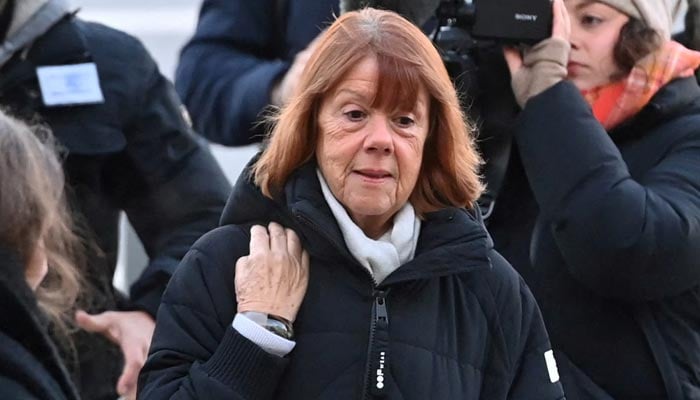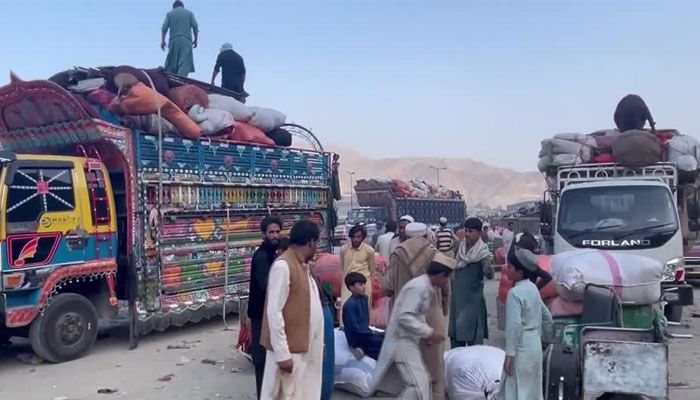Health
Experts attribute spread of polio to misinformation about vaccines
字号+ Author:Smart News Source:Travel 2025-01-13 07:38:28 I want to comment(0)
• International teams have arrived to assess worsening polio situation in country • Sindh CM Murad highlights govt’s efforts to address resurgence of poliovirus KARACHI: Experts have attributed the persistent spread of polio in Pakistan to challenges such as insecurity, misinformation about vaccines and community resistance. They were speaking at a meeting held at CM House where the Sindh government’s progress against polio came under the spotlight on Friday. The provincial leadership and other officials concerned briefed the experts of the Polio Oversight Board (POB), the highest decision-making body of the Global Polio Eradication Initiative (GPEI) led by Chair Dr Chris Elias, and other stakeholders on challenges presented by polio in the country. Sources said the meeting was important given the growing concern of international health organisations over the bleak endemic situation in the country that reported its 52nd confirmed case on Friday. They said the international experts had arrived to assess the situation in the country regrading polio and offer additional support if needed, stressing Pakistan to take urgent steps. According to officials, the POB, which oversees global efforts to eradicate polio, comprises leaders from the WHO, Unicef, Centres for Disease Control and Prevention (CDC)-US, Rotary International, the Bill and Melinda Gates Foundation and Gavi, the Vaccine Alliance. It focuses on the last remaining endemic countries, Pakistan and Afghanistan, in the global fight against polio. During the meeting, Chief Minister Murad Ali Shah highlighted government’s efforts to address the resurgence of poliovirus with 13 cases this year after a break of more than two years in the province. “We have mobilised 4,500 additional staff, engaged parliamentarians in areas with high refusal rates and achieved a 50 per cent (pc) reduction in persistent refusals,” he stated. He also noted that frontline workers, supported by 20,000 police personnel, successfully vaccinated over 10.6 million children in recent campaigns. The CM informed the delegation that the provincial government’s recent immunisation drives had reported Local Quality Assessment Survey (LQAS) pass rates of 89pc in September and 84pc in October. The CM emphasised the importance of combating vaccine hesitancy through targeted communication strategies and expressed gratitude to global partners, including the Bill and Melinda Gates Foundation and Rotary International, for their ongoing support. In his remarks, Dr Elias praised Sindh’s efforts, saying: “Sindh has made substantial progress and we are confident that the teams will successfully clear the environment of the virus.” He also acknowledged the unique challenges faced by Karachi, including high population density and community mobility, which complicate efforts to eliminate the virus. Health Minister Dr Azra Fazal Pechuho reaffirmed Sindh’s commitment to filling immunity gaps, particularly in the high-risk areas like Karachi. “With the steadfast support of the Sindh government and our global partners, we are determined to protect every child and eliminate polio from the province,” she stated. Chief Secretary Asif Hyder Shah highlighted the role of supporting teams of the government in assisting frontline workers and engaging communities to ensure smooth vaccination campaigns. The delegation also acknowledged Sindh’s implementation of performance evaluation scorecards and a transparent accountability framework to enhance campaign efficiency. The meeting concluded with a joint pledge from both the provincial government and the international partners to intensify efforts and overcome the remaining challenges. The CM expressed gratitude to the POB for its continued support, reiterating Sindh’s leadership role in Pakistan’s fight against polio. The experts and government officials attending the meeting included Dr Hanan Balkhy (WHO’s regional director), Mr Sanjay Wijesekera (Unicef regional director), Mr Aziz Memon (trustee of the Rotary Foundation), and officials from the CDC-US and the King Salman Humanitarian Aid and Relief Center (KSRelief). Mayor Karachi Murtaza Wahab and coordinator EOC Irshad Sodhar were also in attendance. As of Nov 22, the country has reported 52 confirmed polio cases; 24 from Balochistan, 13 from Sindh, 13 from Khyber Pakhtunkhaw and one each from Punjab and Islamabad. Pakistan is one of the last two countries in the world, alongside Afghanistan, where polio remains endemic. Despite global efforts to eradicate the virus, challenges such as security issues, vaccine hesitancy, and misinformation have slowed progress. Experts attribute the persistent spread of polio in Pakistan to challenges such as insecurity, misinformation about vaccines, and community resistance. In Sindh, over 43,000 cases of vaccine refusal were reported last month in the province that saw 66 per cent environmental samples collected from 20 districts testing positive for the poliovirus this year.
1.This site adheres to industry standards, and any reposted articles will clearly indicate the author and source;
 Related Articles
Related Articles-
US envoy to meet Israel’s Netanyahu on Thursday: spokesman
2025-01-13 07:27
-
Demi Moore reflects on 'vulnerable' role in 'The Substance'
2025-01-13 07:03
-
Wild chimpanzees adapt genetically to different habitats
2025-01-13 06:29
-
World's top Islamic university set to open campus in Pakistan
2025-01-13 06:24
 User Reviews
User Reviews Recommended Reads
Recommended Reads Hot Information
Hot Information- Businessman found dead in Charsadda
- TikTok lawyer warns of consequences if US Congress imposes ban on app
- Jenny Han reveals how Taylor Swift said yes to ‘TSITP’ music request
- Tom Holland's dad shares concerns over son's love life amid engagement rumours
- Balochistan CM Bugti wants early completion of Kachhi canal
- KP govt to bring in Musk for internet slowdown crisis, reveals official
- Cameron Diaz, Eddie Murphy's 'Shrek 5' release postpones
- Rise in remittances: PML-N taunts PTI as expats snub Imran's civil disobedience call
- HRCP supports farmers
 Abont US
Abont US
Follow our WhatasApp account to stay updated with the latest exciting content













